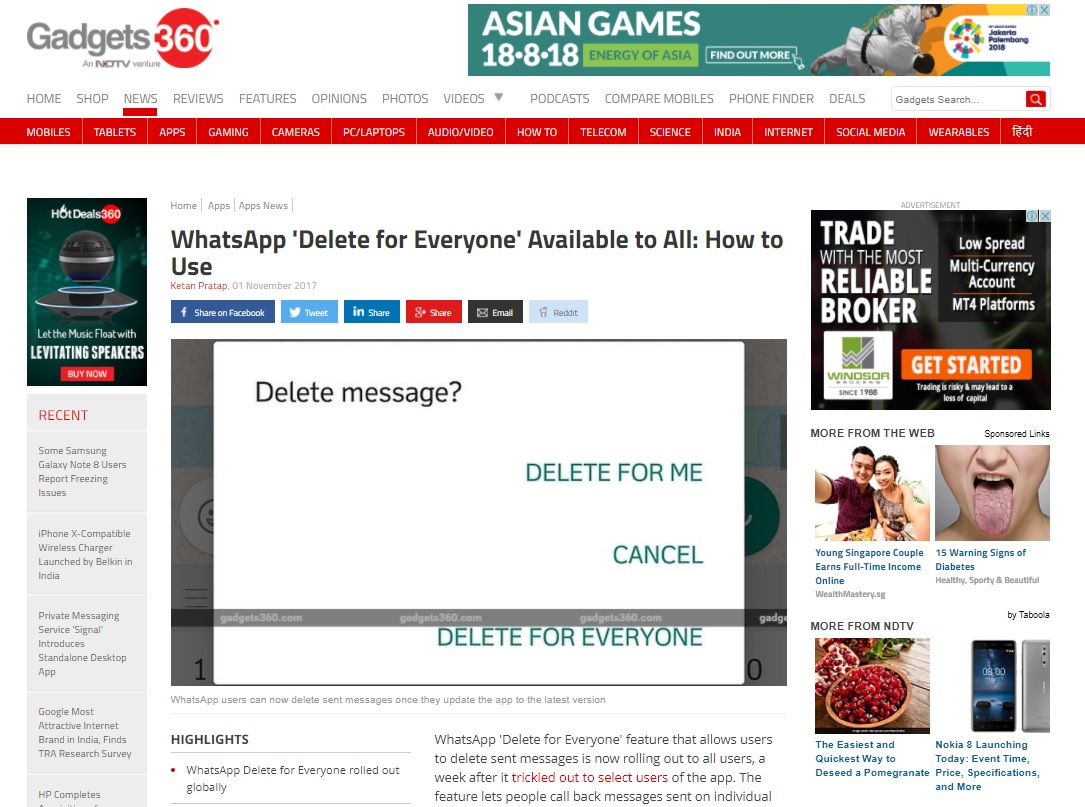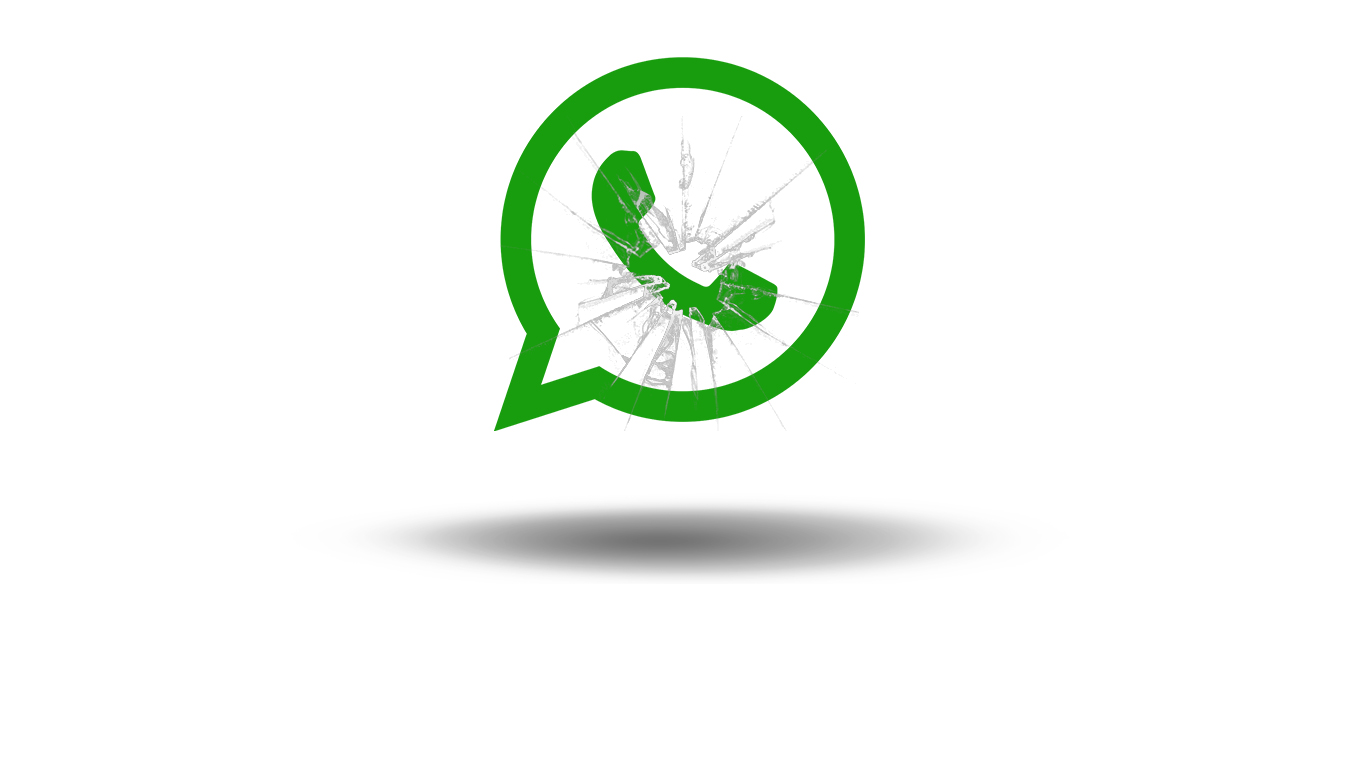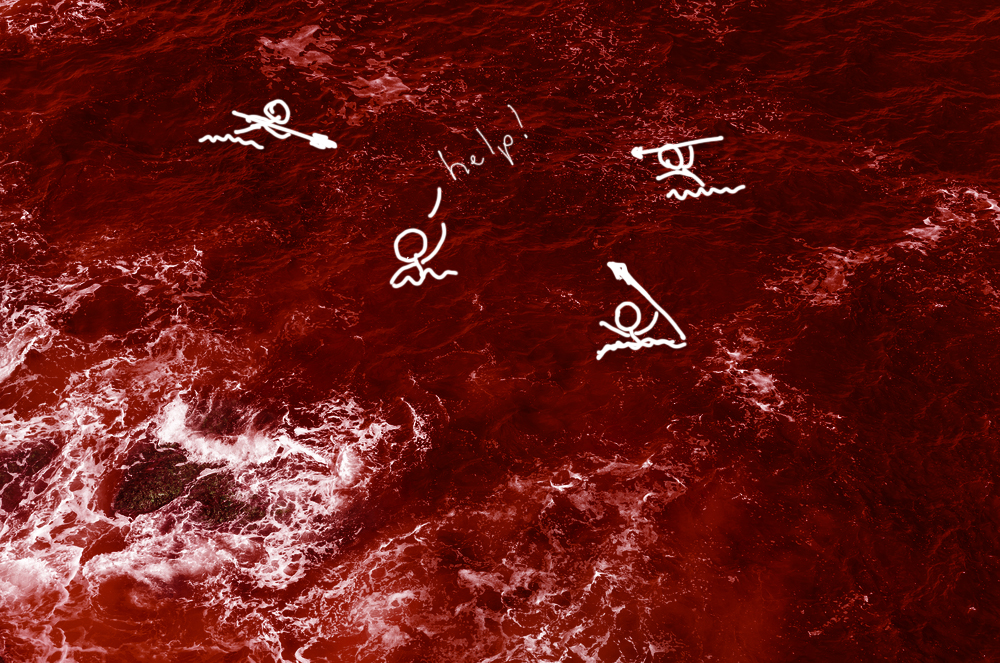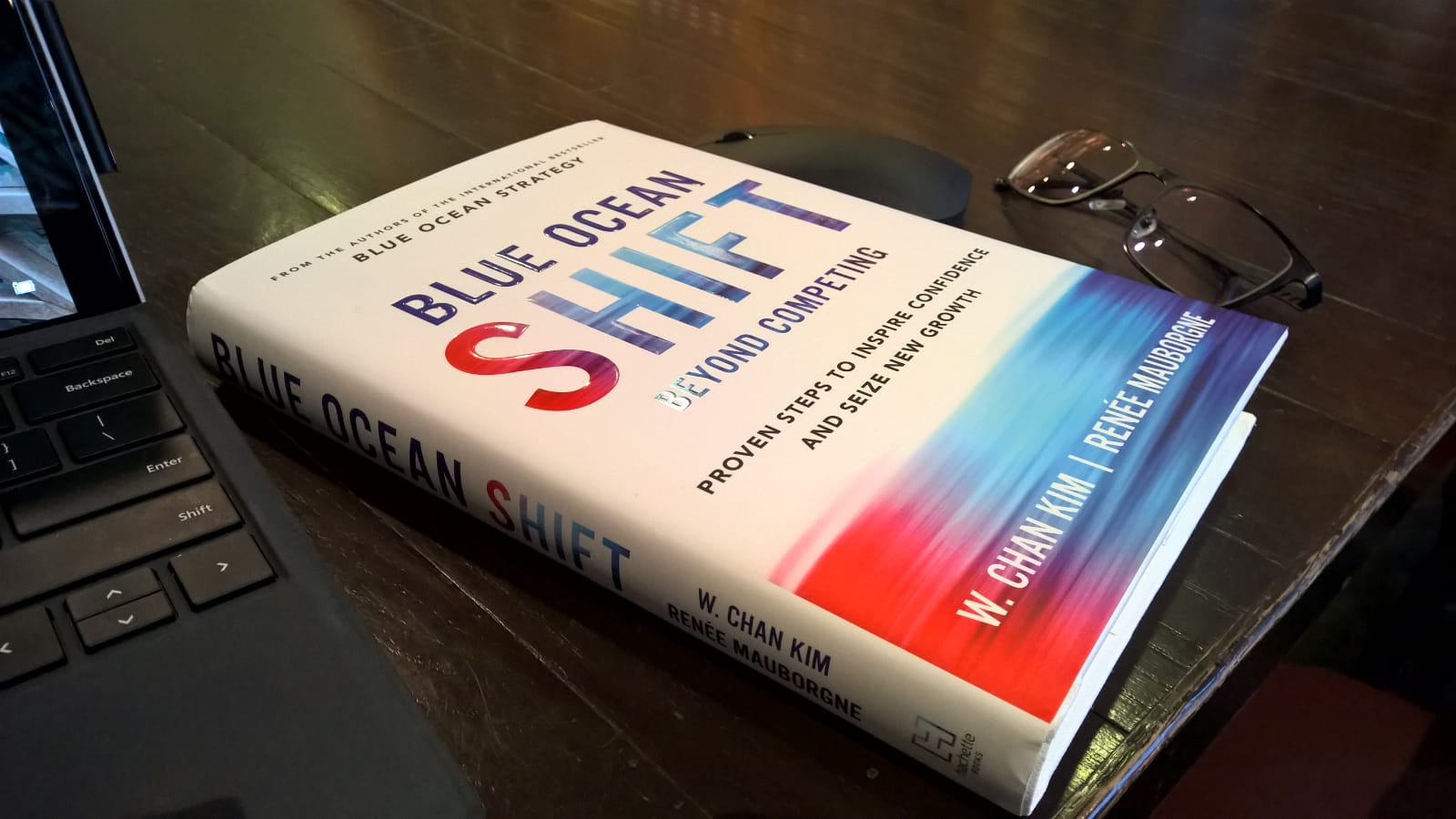Whatsapp added a delete message feature – is that even necessary?
November 1st, 2017 | Strategy

Yesterday, WhatsApp fascinated the world with a new feature: message deletion.
Probably something a lot of people had been hoping that WhatsApp would have for a long time, especially those that accidentally send an auto-corrected message to the last person who should be reading that very message. So of course a lot of people would find this a hugely welcome addition to the progressively improving WhatsApp.
However, we at Joji sense a strategic mistake instead of an improvement that actually improves the app.
We think its a strategic mistake to add the delete function.
Why did we make such a claim: we need to analyse why WhatsApp had been so dominant (outside China) despite the heavy competition among the chat apps, with powerful competitions like WeChat, KakaoTalk, LINE, Snapchat, Skype, etc…
SERIOUSNESS.
WhatsApp sets itself apart from all the other chat apps, for being simple, minimalist and no nonsense. There are no cute stickers, no content, no “wall” – there is literally no fluff. And this created an interesting persona for WhatsApp : it became SMS2.0.
While the SMS enter its inevitable decline with the rise of faster and more convenient internet access on the mobile/cell phone, it heralded the rise of the internet chat apps to take advantage of the disruption in the messaging space. While some chat app went into a more social-centric direction, and others want to revolutionize communication in the internet age with webcams and instant voice chat – WhatsApp largely kept themselves within a simple concept of an “improved SMS” – the familiar feel to SMS and simplicity quickly brought it to become the premier chat app in many countries around the world.
THE DE FACTO BUSINESS CHAT APP
In Singapore, WhatsApp is especially successful at establishing themselves as the app for business communications (apart from Skype / Google Hangouts, which is mainly use for teleconferencing). WhatsApp is also used by many businesses as a note taking app among colleagues or between boss and his/her staffs. Everything that is sent into the WhatsApp are as good as “set in stone”.
For some businesses that I observed, entire business operation and communications is done through WhatsApp and Voice Calls (half of them probably also through WhatsApp). Employees and vendors uses the app as a way to be answerable to their respective connections. The date and time stamps are indications of a timely respond to clients as well as prove of “approvals” when dispute arises. The very lack of the ability to delete message, made WhatsApp as powerful legally, as the Email chains.

THUS THE PROBLEM
Thus, the WhatsApp messages’ “enduring history”, that enabled it to outperform itself beyond that of just a basic chat app, is now utterly smashed with the addition of the delete function – people’s words that is sent through WhatsApp suddenly lost much its legitimacy. Words can now be said, and then retracted by deletion. The time & date stamp of an important message that we behold a person to their words, can now be nothing more than a “message is deleted”.
The Very Essense of WhatsApp is Lost.
WhatsApp lost its soul.
We at Joji cannot comprehend the folly of this decision, a feature that can neither bring more users into using the app, nor can it make WhatsApp more money, furthermore encouraging users to be more reckless with their words while destroying the business functions that it used to embody. This will not increase their market share or usage, but we believe it will actually cause WhatsApp to lose market share.
We are highly disappointed with this feature and this move – and this will no doubt, shake up the entire messaging app industry.
People’s words that is sent through WhatsApp suddenly lost much its legitimacy. Words can now be said, and then retracted by deletion. The time & date stamp of an important message that we behold a person to their words, can now be nothing more than a “message is deleted”.
Why it matters?
October 25th, 2017 | Strategy

Imagine the market that you are in is a piece of ocean territory that you are fighting in, and that within in, as per most industries / markets, it is filled with competitors, that are all out to fight for the same customers, and if they can help it, drive you out of business.
Now imagine, if there is a market, there is absolutely untouched, customers are starving for your products and services, and when you arrived, you are the only one in that market that is able to satisfy these unfulfilled needs.
Which one would you prefer to be in?
Easy answer isn’t it?
And this is the difference between being in a Red Ocean and Blue Ocean – the terms that were derive from the incredible book by W.Chan Kim and Renée Mauborgne: Blue Ocean Strategy.
In the Blue Ocean Strategy book, they introduced the concept of “Red Oceans” and “Blue Oceans”that marks the difference between existing markets and new markets. In it, they quoted examples of how the Cirque du Soleil revolutionize what circus should and can be, by leaving a dying tradition, removing the animals acts, and infusing modern dance music and arts into a theatrical phenomenon.
The concept is sound. As the famous saying goes, “If you ask a horse carriage customer, what would they want, they would say a faster horse”. And this is the dilemma facing all business owners and directors when they trying to forge ahead for their business. By asking the wrong questions, albeit an innocent logical one, the answer will lead the organisation down the path of pain and difficult competition.
Although the book did not really mention any form of “tool” or “strategy”, despite the book is called “blue ocean strategy”. What the book mainly did, is to educate the public about the existence of the 2 oceans, and quoting examples of how such discovery of blue oceans, changes not just the fate of the company/organisation, but changes the world. Which is why “Blue Ocean Shift” is so exciting: because after the success of Blue Ocean Strategy, the authors went on to research and study how companies and organisations find and succeed to discover their blue ocean – and finally came up with the tools for everyone to be Blue Ocean Strategist.
However, the very enlightenment of the existence of Blue Ocean Strategy had drastically changed a lot of how the world find better solutions to problems and its had done tremendous good despite the lack of a tool set and guide to creating/finding the Blue Oceans.

If you are interested to know more about Blue Ocean Strategy and how to do the “Shift” to Blue Ocean, stay tune on Joji.co , as we continue our journey to explore Blue Ocean Shift as well as other strategy related research that we are studying on.
The long awaited sequence to the revolutionary book: Blue Ocean Strategy
October 16th, 2017 | Strategy
Its been a long time coming since the launch of Blue Ocean Strategy that took the business world by storm. Not only did the business gain new insights into how to break out of their destructive cycles, governments around the world had been using the concept of Blue Ocean vs Red Ocean, innovating numerous initiative that had change the lives of people everyday.
The main gripe I had with Blue Ocean Strategy, was the lack of “the strategy” in the book. The book was mostly about being aware of the concept of Blue Ocean and Red Ocean, rather than how to find the Blue Ocean amidst that clutter and noise of the Red Ocean battles.

And when Blue Ocean Shift was announced, Joji immediately got onto the preorder list, and we had gotten the book as soon as Amazon was able to ship it.
And to the benefit of all, we will be covering the “proven steps to inspire confidence and seize new growth” right here on Joji.co, and help to make sense of all these in the most actionable and simply to understand way possible.
Stay tuned!
